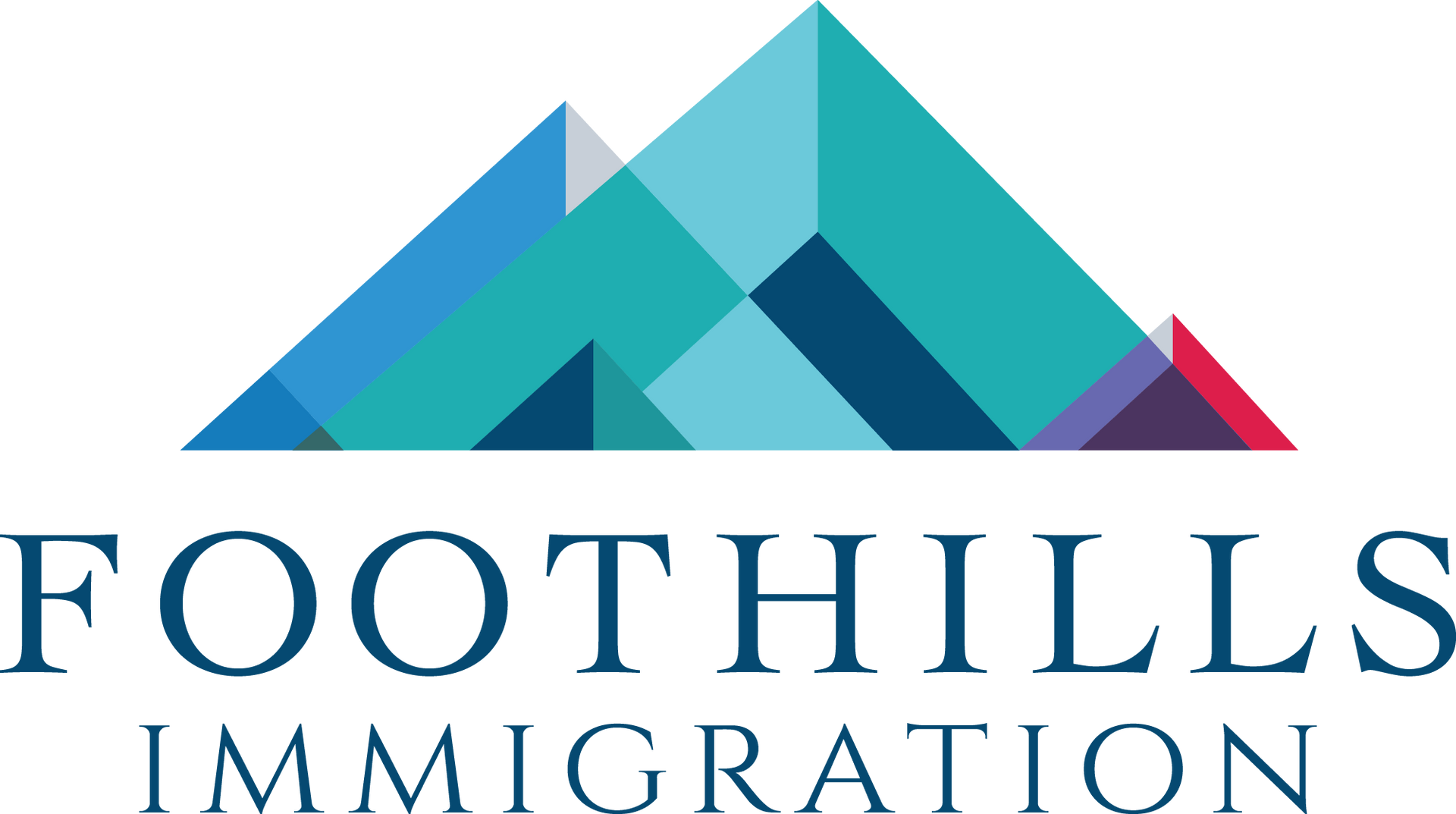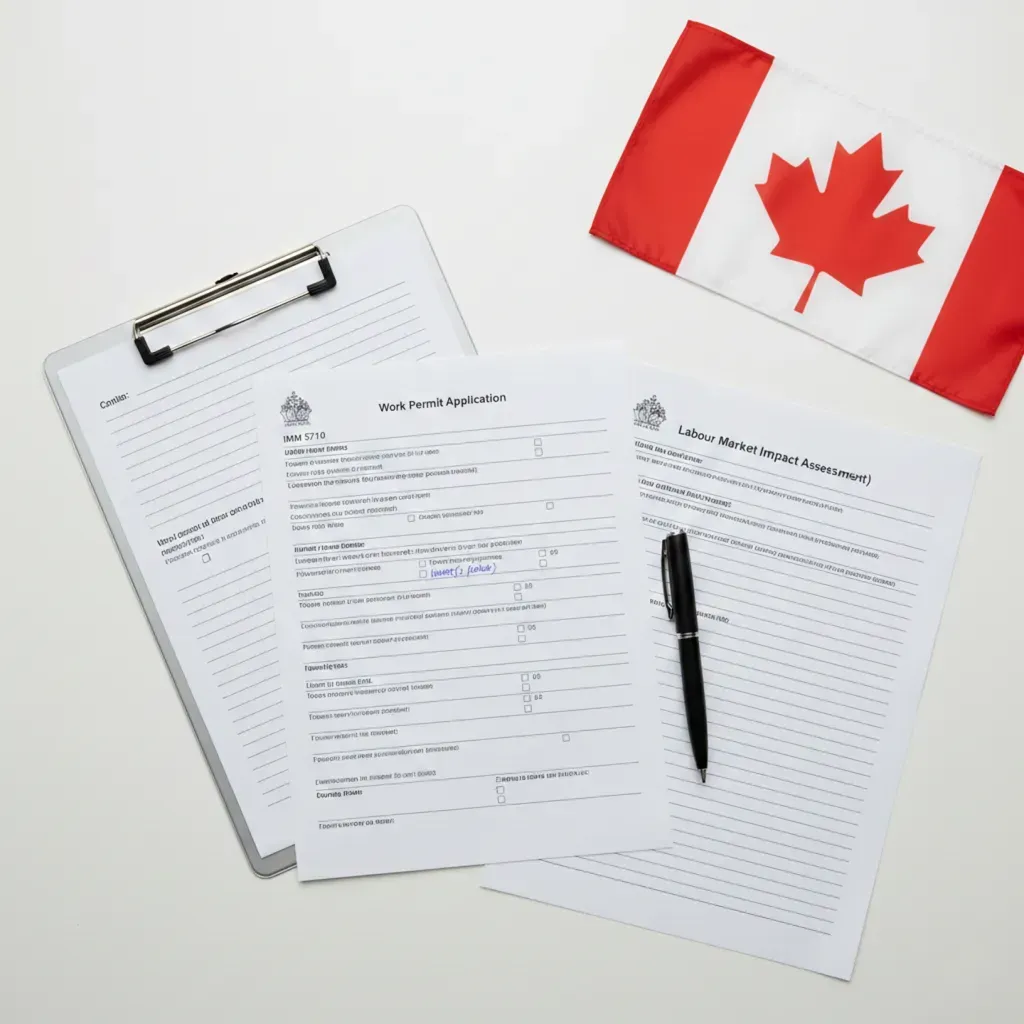Key Questions To Ask Yourself As You Pick Your Path To Permanent Residency
We spoke with immigration expert, Leann Iamartino, to help you decide which path to take when pursuing permanent residency.

The path to Canadian permanent residency is different for everyone. There are so many different directions one can go depending on your unique circumstances. Not only are there tons of possibilities, but the possibilities are ever-changing. New opportunities and permits are constantly emerging, so it's essential to keep your finger on the pulse of what's happening around you and how it might affect your journey, for better or worse.
Because anything to do with immigration can be complex and intimidating, we decided to bring in an expert to give you some perspective on how you might go about choosing your path to terminate residency. We are chatting with Leann Iamartino, Regulated Canadian Immigration Consultant at Foothills Immigration, to give you some professional perspective. Here's a list of questions to ask yourself when deciding how to approach your permanent residency application.
What Are Your Goals?
When looking into your future residency, it's a good idea to look into your future in the big picture. "Consider your long-term and short-term goals, too," said Leann. If you have a good idea of how you'd like your life to unfold over the next few years, or at least a general idea of the direction, it will help inform your choices. So, Leann offered some things to mull over. What are your career goals? Is your job a central focus, or are you willing to do any work to suit the lifestyle you're looking for? Are you hoping to start a business one day? What industry or industries do you want to work in? Consider your goals in terms of education and if you're going to return to school or expand your skillset.
Next, where do you want to end up geographically? Do you have a province in mind? Do you have a city or town in mind? Do you have a type of area you're attracted to? Or are you completely flexible?
Another thing to consider is how long you want to be in Canada. A year? A few years? Forever? Once you've got a list of your goals, including your non-negotiables and areas of flexibility, you've got something to help you guide your decision-making.
What Are Your Current Circumstances?
Now it's time to inventory yourself and your current situation. What is your professional background (within Canada and outside of Canada)? What certifications, degrees, and professional skills do you possess? And what type of visa or permit do you already hold? This is where you begin understanding what routes to permanent residency you might qualify for.
Looking into your professional background may uncover some crucial qualifications for you. "When it comes to working in Canada, you are given a lot of credit if you've held a position in Canada for 12 months or more, which obviously gives you points towards Express Entry and qualifies you for Express Entry. That is not the only thing that qualifies you, but it certainly does help," Leann explained. "If you've only worked in Canada for a couple of months, Canadian Experience Class is not going to be an option to you, but you may qualify for a Federal Skilled Worker or even Federal Skilled Trades," she continued. When you're doing this inventory of yourself, it gives you a glimpse into the many ways you might proceed. There are tons of other things to think about, such as if you have a spouse and what their situation is, what your skills are and if your desired province has opportunities for you, if you currently hold a named work permit or an open work permit, if you have post-secondary education, and the list goes on.
The answers to these questions might put you into many buckets and give you many different paths forward. This is great because you can further research the best option for you. Experts like Leann help walk you through these questions and have a knack for pointing out unique things about your situation that might qualify you for programs you didn't even know existed.
What Options Are Available to Me?
This is where the next piece of the puzzle comes in. Once you know everything about yourself, you'll want to dive deeply into the federal and provincial programs you might qualify for. "The programs are very different in each province because each province wants to attract what they're short on," Leann explained. For example, Alberta might offer permits for entrepreneurs, while Manitoba offers permits for truck drivers. If you're flexible on where you'd like to live, looking into this program can open up a whole new realm of possibilities.
These provincial nomination programs "are great because they change often, and they offer a ton of really good options," Leann said. "It's worth researching and seeing what your province offers and what you might qualify for at the federal level, too."
What Have I Done & What Do I Need to Do?
Once you've set your sights on a program, it's time to look into the steps you need to take and which you've already completed. Leann suggests doing a few things proactively before you even start looking into your options. For example, you'll want to have your English language test done and an educational assessment.
Your language test is valid for two years, and your education assessment is valid for five, so those are always good things to have in your back pocket. "If the federal or provincial government opens up new programs that you qualify for, you want to make sure you've got everything in order, so you're prepared," she told us. You can also proactively get reference letters from past employers, collecting documents like birth certificates, divorce or marriage papers, transcripts, etc. "Even if something feels irrelevant, just make sure you have all your personal documentation because it might come in handy," said Leann.
So, you'll want to look at what you've already got if you've been proactive and determine what else you need. As always, you'll want to act fast because when a perfect program comes around, you want to take advantage of it.
We know this is a lot to digest. If the whole thing still feels intimidating, there are always professionals like Leann to help you out.
Originally posted here https://www.rmoutlook.com/immigration-in-the-bow-valley/key-questions-to-ask-yourself-as-you-pick-your-path-to-permanent-residency-6150131











